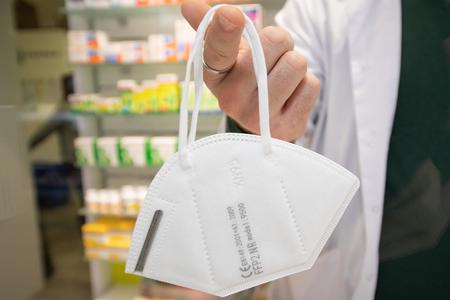The last Covid restriction that remain in place will be dropped from tomorrow, April 21.
People will no longer be required to wear FFP2 respirators inside buildings, including workplaces or shops, nor will they be required when travelling on public transport. Masks will not be needed even at mass events, whether indoor or outdoor.
Our paywall policy:
The Slovak Spectator has decided to make all the articles on the special measures, statistics and basic information about the coronavirus available to everyone. If you appreciate our work and would like to support good journalism, please buy our subscription. We believe this is an issue where accurate and fact-based information is important for people to cope.
The only exception will be for visitors to nursing homes, hospitals and other medical facilities, where respirators will still be mandatory. Personnel at these facilities will also have to continue wearing them.
There will also be some changes to mandatory self-isolation for close contacts of people who test positive for Covid, Health Minister Vladimír Lengvarský (OĽaNO nominee) announced.
Some people might still wear them
The reason for dropping the requirement to wear respirators indoors is the improving pandemic situation in Slovakia.
The average number of confirmed daily cases dropped by 45 percent compared to last week, and there are fewer people in hospitals as well.
However, there are still some groups of people who might benefit from wearing masks, chief hygienist Ján Mikas said. This concerns particularly people aged 70 years and above, people suffering from chronic diseases and those with weaker immune systems.

Meanwhile, not all people will be required to wear respirators when in nursing homes or medical facilities. They will be allowed to replace them with regular face masks if they have some facial skin diseases or chronic respiratory disease.
If the situation gets worse or a new variant surfaces, the measures might return, Mikas added.
Self-isolation of close contacts changes
The only measure that remains in place is the self-isolation of people who test positive for Covid-19.
They still need to stay at home for five days if there are no symptoms. If there are symptoms, their general practitioner will decide on the end of quarantine.
These people also have to contact everybody they met in the previous two days. They have to stay at home and can leave only when going to the doctor or attending the funeral of a close relative. After their self-isolation ends, persons older than six years are required to wear a respirator for five more days.
People who have been in close contact with a person who has tested positive are not required to observe self-isolation, unless a general practitioner decides it is necessary. Those who stay in self-isolation will not be required to wear respirators once their quarantine is over.


 Illustrative stock photo (source: AP/TASR)
Illustrative stock photo (source: AP/TASR)